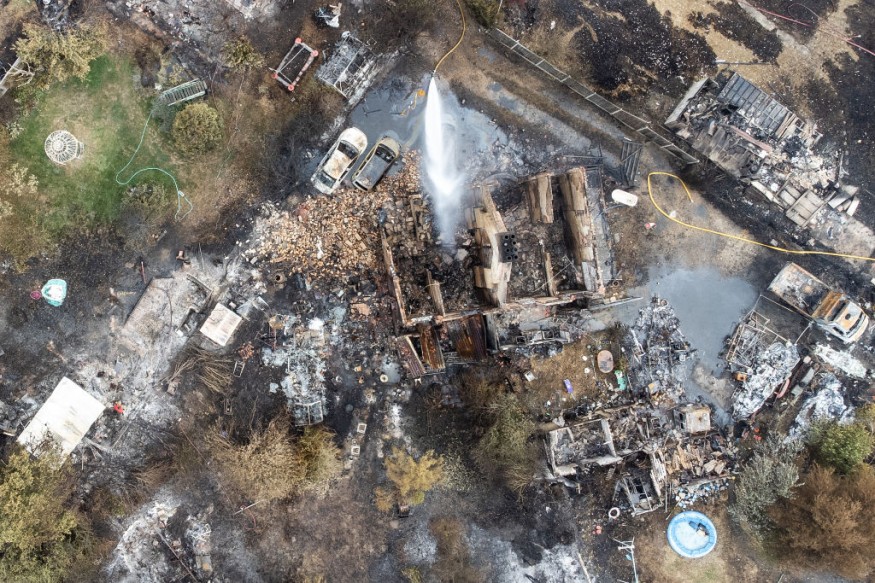
Giant flames from surge of wildfires have torn through a row of houses in Essex village yesterday , while huge grass blazed dramatically on the outskirts of East London, ripping through the streets.
At least five houses are destroyed due to fires as Britain faces 40C (104F) temperatures for the first time on record across the capital, the Daily Mail reported. The London Fire Brigade has declared the surges a 'major incident' and came under 'immense pressure', with 15 fire engines and 100 firefighters trying to get rid of the ongoing Wennington blaze.
According to forecast, the fire started in the grassland and has spread to nearby buildings and a fire station. Aerial footage shows smoke-covered village, while nearby grassland and infrastructures continue to burn.
Fire fighters were called into action around 1pm.
Breaking Highest Temperatures in the UK
UK heatwave has broken out across Britain, surpassing 40C for the first time ever, according to BBC. Outgoing Prime Minister Boris Johnson has paid tribute to firefighters and frontline workers containing the fire and keeping the country safe on the country's hottest day on record.
Coningsby in Lincolnshire and 33 other locations went past the UK's previous highest temperature of 38.7C, set in 2019.
"My thanks go to all the firefighters and frontline services who are working incredibly hard to keep us safe on this scorching day. I urge everyone to continue to follow the advice from emergency services - including @LondonFire as they respond to incidents," Boris Johnson said in a statement.
In addition, some rail services were also cancelled after tracks expanded due to high temperatures and overhead cables failed. According to Network Rail, high temperatures have expanded its rail lines by about 30cm. This causes the steel rails to expand, bending the lines or even breaking them.
Although Europe's railways are built to withstand high temperatures, the ones in Britain have not been designed to resist such heat.
Also read : Three Wild Bisons Set Free to Roam Around Britain for the First Time in Thousands of Years
Fires Elsewhere in the Country
Wildfires elsewhere in the country such as Leicestershire, East, North and South Yorkshire and Lincolnshire, Hertfordshire, Suffolk and Norfolk, were declared 'major incidents' as well. Home Secretary Priti Patel said she had been updated on the "dangerous fires" and urged the public to observe safety precautions and follow advice from their local fire service.
The first to break the 40C mark, hitting 40.2C, was Heathrow Airport, but several other places - all in London - also passed the mark during the afternoon, including Gringley on the Hill in Nottinghamshire and St James's Park, Kew Gardens and Northolt.
Meanwhile, Scotland also recorded its hottest day ever, hitting 34.8C (94.6F) in the Borders - beating the previous record of 32.9C recorded in 2003, BBC reported.
According to Met Office chief of science and technology Prof Stephen Belcher, exceeding 40C was "virtually impossible" in an undisrupted climate. However, it's obvious that climate change "driven by greenhouse gasses" seem to cause such extreme temperatures to become a reality.
If high emissions continue, Belcher says "we could see temperatures like this every three years."
Related article: Firefighters Struggle to Contain Wildfires Due to Heatwave Across Southwest Europe
© 2025 NatureWorldNews.com All rights reserved. Do not reproduce without permission.





